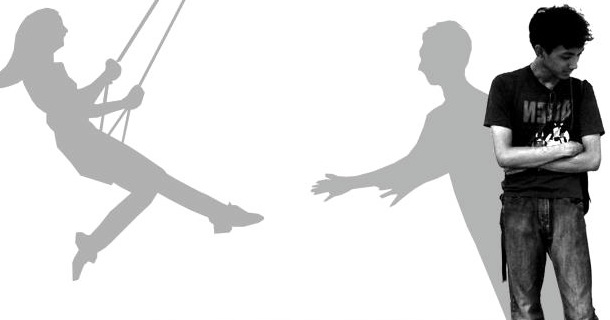by Syed Adam Alhabshi
Na’uzubillah - We seek Allah’s Protection from being in this level.
This is a simple series on some interesting facts on our obligatory prayers. For all of the articles in this series please click here.
Fact 11: The Five Levels Of Prayers
I got this piece of information from the MPF Summer Camp I attended which was facilitated by Moez Massoud back in 2003.
These levels are actually arranged by scholars to gauge where they ranked in their prayers in terms of khusyu’ (concentration).
Before I begin, I need to explain about the exterior and interior part of a prayer which is relevant to this post.
The Exterior Part indicates the preparation taken before one is about to make his prayer such as the taking of proper wudhu’, the wearing of proper clothes that covers the aurat (which includes the sister in ensuring that all of their hair is covered and not have strands of hair out beside her face with a disoriented head scarf), the place of prayer (a place which is clean and not obstructing people) etc.
The Interior Part indicates the taking care of the recitation that we make in our prayer, the proper structure of our body when we stand, ruku’, sujud, make our tahiyyat etc. These two hadith would be good to understand how the Prophet’s body was when he prayed.
1. Narrated Rifa`a bin Rafi` Az-Zuraqi: Prophet rose (from bowing) and stood straight till all the vertebrae of his spinal column came to a natural position. [Bukhari].
2. Narrated Muhammad bin `Amr bin `Ata': I was sitting with some of the companions of Allah's Apostle and we were discussing about the way of praying of the Prophet. Abu Humaid As-Sa`idi said, "I remember the prayer of Allah's Apostle better than any one of you. I saw him raising both his hands up to the level of the shoulders on saying the takbir; and on bowing he placed his hands on both knees and bent his back straight, then he stood up straight from bowing till all the vertebrate took their normal positions. In prostrations, he placed both his hands on the ground with the forearms away from the ground and away from his body, and his toes were facing the Qibla. On sitting In the second rak`a he sat on his left foot and propped up the right one; and in the last rak`a he pushed his left foot forward and kept the other foot propped up and sat over the buttocks." [Bukhari].
THE FIRST LEVEL:
The first level of prayer is when someone does not take care of his exterior and interior part of his prayer. This person will be punished for his prayer.
Na’uzubillah - We seek Allah’s Protection from being in this level.
THE SECOND LEVEL:
The second level is when someone takes care just a little bit of his exterior and interior prayers. Jaga sikit-sikit. This person’s prayer is accepted but he will still be punished.
Na’uzubillah - We seek Allah’s Protection from being in this level.
THE THIRD LEVEL:
The third level is when someone takes proper care of his exterior part and the moment he starts to pray, every single thought other than Allah comes to his mind. He starts to think if he had locked his door, where he left his keys, how he should make a decision for this or for that etc. The interior part is just not there.
However, he knows that he must be khusyu’ so he tries to focus his attention to his prayer. He lowers his gaze and tries to focus at his prayer mat. This last for a good 30 seconds, and BAM! he realizes that the Kaabah on his prayer mat looks a bit funny and not proportionate, the prayer mat’s colour seems faded, he forgot to cut his toe nails etc. This cycle goes on and on and on until he completes his prayers.
However, he knows that he must be khusyu’ so he tries to focus his attention to his prayer. He lowers his gaze and tries to focus at his prayer mat. This last for a good 30 seconds, and BAM! he realizes that the Kaabah on his prayer mat looks a bit funny and not proportionate, the prayer mat’s colour seems faded, he forgot to cut his toe nails etc. This cycle goes on and on and on until he completes his prayers.
In other words, he takes care of his exterior part and does his best to care for his interior part but fails miserably.
Most of us are in this level. I know I am for sure!
But fear not. The scholars have concluded that for this type of prayers, WE GET DOUBLE THE REWARD!
The first reward is because we pray for Allah and take proper care of our exterior part and (tries to take proper care of) our interior part as well. The second reward is for the jihad (the strive to succeed) against Shaitan who comes and whisper all sorts of nonsense to distract us.
Not bad eh?
But remember the key word here. We must do our best to stay focus and not just let our mind wonder away in prayer. We don’t want to fall back into the second level now do we?
THE FOURTH LEVEL:
The fourth level is when someone cares for his exterior and interior part of his prayer. This person obtains khusyu’ in his prayer. This person is regarded as Habibur Rahman (One who is loved by Allah)!!! The companions of the Prophet were in this level.
Once a companion had an arrow stuck in his calf and it was too painfull to pull it out. So he asked his friends to wait for him to start praying and then to pull the arrow out. While he was praying, his friends pulled the arrow out. After prayer, he said he didn't even feel the arrow being pulled out. Masha Allah!.Another companion asked his grandchildren to start making noise when he prayed because then he would not even hear them then...Look at how these companions attained khusyu' when they prayed. =)
So all the best in achieving the highest level of prayer!
If we are already in the third level, we should strive to be better and climb into the fourth level.
Let us set it as our own personal mission when we pray that we get to be in this level Insha Allah.
THE FIFTH LEVEL:
The fifth level is when that person starts to pray, it is as though he takes his heart out and just give it to Allah.
No more worldly matters for this man. It’s a highway to heaven for him.
This is the Prophet’s level of prayer.
THE BEST OF THE BEST.
If you by any chance or sheer hardwork manage to reach this level, please contact me for I have a lot to learn from you!So all the best in achieving the highest level of prayer!






 9:13 AM
9:13 AM
 Shazeea
Shazeea










